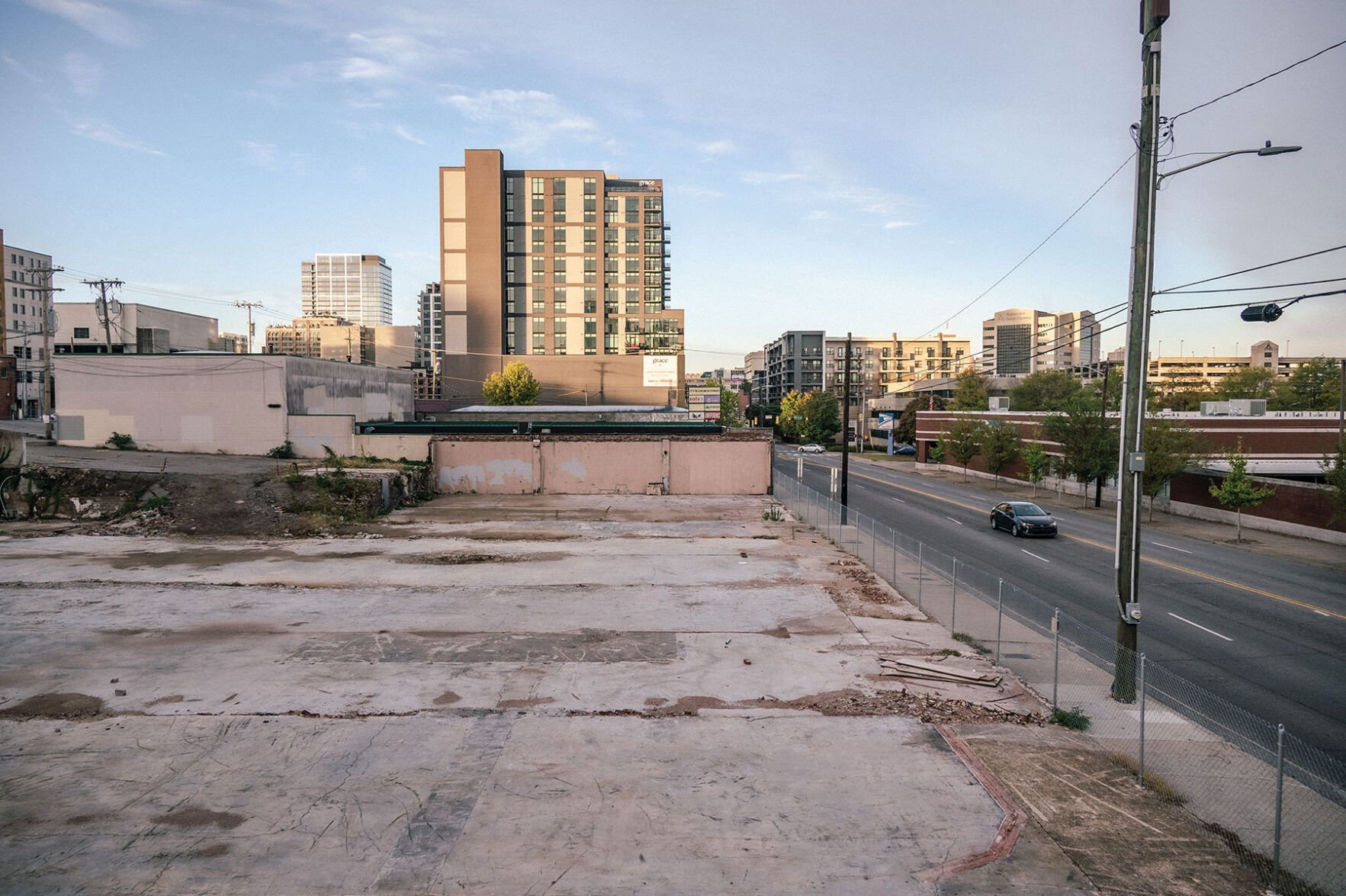For many longtime Nashvillians, memories of Old Nashville line the walls of their minds like a set of dusty encyclopedias — anthologies they revisit when they’re looking for a comforting dose of nostalgia.
For those of us who identify as LGBTQ, one of the most cherished volumes in that memory bank includes tales from throughout several demolished structures along the 1700 block of Church Street. This row of buildings, which were unceremoniously demolished earlier this year, housed a number of beloved queer and queer-friendly independent businesses. They stood in an arguably overlooked part of Midtown — especially during the ’80s and ’90s — and created the perfect opportunity for a lively “gayborhood” to thrive in the shadows.
The untold story of Nashville's oldest gay bar
Speaking with the founder of Nashville Queer History, a spectacular community organization with a much-loved Instagram account, I learned just how impactful this area of Nashville was for queer individuals in Middle Tennessee.
“I always say there’s more queer history than people realize,” says the Nashville Queer History founder, who asked to remain anonymous. “Southern queer history feels like the final frontier.”
Throughout our conversation, I recall my favorite spots on this strip. Outloud! is my most treasured — the beloved gay bookstore expanded and flourished for the majority of its 15-year lifespan, at one point taking over the building next door. There was also Blue Gene’s, which was a self-proclaimed “no attitude,” no-frills gay bar — the type of bar where you could sing “Maybe This Time” from Cabaret through tears while on your knees and in the midst of a breakup, smoking a cigarette at the same time. (This may or may not be based on personal experience.)
Spend a little time talking to Ted Jensen about his shop Outloud!, and you get the feeling that he and his partner Kevin Medley, who run the e…
But I was surprised to learn how many queer-run establishments existed in that area before my time, some dating back to the early ’80s. There was the short-lived yet well-remembered gay bar Jaded Mary’s, which later became Blu (not to be confused with Blue Gene’s), another no-frills nightclub with a lesbian slant. It seemed as if these businesses were constantly coming and going.
Of all the establishments on this strip, the most sorely missed — and ironically, the least documented — was the restaurant The World’s End, which opened in 1981. The World’s End was considered one of the first truly “cosmopolitan” Nashville restaurants. And although it was never officially advertised as a gay bar, it was known for its strong LGBTQ clientele and a prominently queer front-of-house staff — a true safe haven in a time when being gay was a social and professional liability.
Local political figure Mary Mancini — who agreed to meet me for coffee — remembers The World’s End well. Lucy’s Record Shop (Mancini’s incendiary all-ages punk club) opened just two doors down in 1992. This same building would later serve as the original location for the bar Canvas, another LGBTQ staple.
Talking with shop founder Mary Mancini and others ahead of a 30th anniversary celebration at Drkmttr
Mancini, who would later serve as chair of the Tennessee Democratic Party, was inadvertently made High Priestess of the Nashville punk scene after she started letting local punk and hardcore bands perform in the back of her store. She also famously adopted the store’s legendary motto — “No racist, sexist or homophobic shit tolerated” — to show her support for the surrounding businesses.
When I ask Mancini about the demolition, she shrugs. “My reaction was to the reaction other people had. They were torn up about it, and I felt sad for them.”
Despite Mancini’s Yankee pragmatism (she’s originally from Long Island), I know that if I had wandered into Lucy’s in my tattered Abercrombie polo, Mancini would have instantly taken me in, just like all the other dented cans who turned up there — the kids in the back row who were looking for a place to be themselves. Over the course of our interview, she gives me some excellent advice. She laughs when I tell her I got my GED at the same testing center as Gretchen Wilson, but then looks into my eyes and says, “You know that doesn’t matter, right? Please don’t see that as [a reason] to feel badly about [who you are].” Mancini also splits her avocado toast with me.
As I wrote this story, I often thought of a famous quote from one of my favorite gay icons, Broadway legend Elaine Stritch: “Everybody’s got a sack of rocks.” I believe that every longtime Nashvillian felt their burden become a little heavier after The New York Times changed our city forever with a rave 2013 review proclaiming us the “it” city. But we all have the heaviness of our memories, our sack of rocks, to remind us of a town we once knew, and the safe spaces that shielded us.








